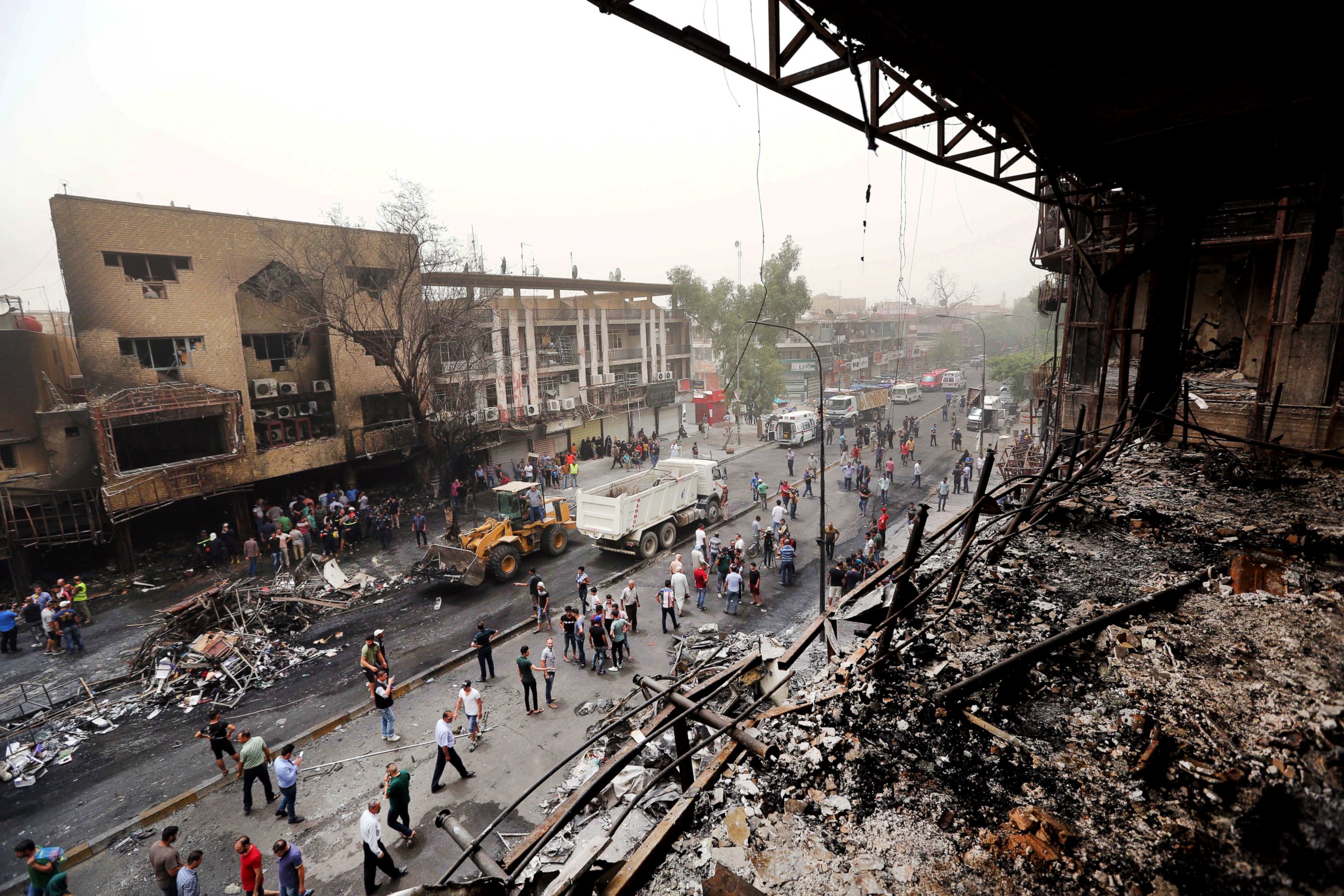Alwaght- More than two hundred candles were extinguished on a busy Sunday morning in the Iraqi capital Baghdad. People were preparing to celebrate for a day that they would not live to see when bombings ripped through Karada at the heart of Baghdad. The lives of these Iraqis were put out near the end of the holy month of Ramadan, they were quenched leaving Baghdad in a long night save for the candles that were lit in their memory. Meanwhile, no moments of silence were heard in the West.
It seems that according to Western standards, even the sense of humanity picks a side, often that of their own. One Western life, accordingly, is more precious that the lives of hundreds who perish in the same way. When a terrorist attacks hits a Western city, it triggers a wave of condemnation, solidarity, and sympathy that sweeps the political scene, main stream media, and even social media and becomes a hot topic even when updates are no longer available. But when the same kind of onslaught perpetrated by the same attacker hits a non-Western city, the attention only visits for a short while.
The recent massacre in Iraq has been met with insufficient Western attention compared to the ones in Paris and Orlando. This is despite the fact that the death toll from the blasts in Baghdad which is no less than 213 is much higher that of the Orlando night club shooting and surpasses the Paris attack count as well as that of Brussels.
The media fanfare has subsided just shortly after the deadliest attack to hit Baghdad in the past few years. Many have expressed disdain over the discrimination they have noticed to be trending in mainstream media; giving a week-long investigation into terror victims in the West but allotting only a few news items for those elsewhere.
The hashtags #prayforIraq and #iambaghdad are being used but it did not break the internet like others did.
One Facebook user posted the following comment on the incident. “Media attention barely any. No one cares. They are just numbers. Until they run out of numbers then it’ll be just an easy land to conquer.”
Another social media user raised the question on twitter: “Where is their moment of silence?”
We can sum up these reactions in a few questions.
Why is it that when an attack in cities like Brussels or Orlando takes place, the world is forced to mourn but when a terror attack targets a West Asian state like Iraq, Syria, Lebanon, and others it only merits brief news coverage at best?
Why have so many people changed their profile photos of their social media accounts after these attacks but haven’t done the same after the Baghdad blasts?
While it is true that terrorist attacks in Western cities do not occur very often and those in Baghdad occur frequently (albeit not on such a massive scale), it is still worth mentioning that just because attacks happen often does not mean that they become acceptable or less painful. It seems that the more that people are killed in Iraq, the less the reaction; the more destruction there is, the less the outcry. Deadly attacks have become part of Baghdad’s existence as a city at the center of conflicts and the victim of an entity that spreads violence in the name of Islam. But never should these assaults become mundane, unimportant, or unworthy of sympathy because they occur frequently. If anything this emotion should increase.
Another point is the degree to which our sympathy is directed according to identity. Seeing the dead bodies of children, men young and old, women, mothers; spilled blood and shattered dreams of innocent people, should instinctively provoke grief based on humanity not the extent of similarities shared by the viewer and the victim. Being human should be enough.
Our humanity should not be compromised because the pain is too recurrent and it must be protected against ambivalence. We should pray for Iraq, speak for Iraq, and act for Iraq not because Iraqis’ lives matter more than those of Americans, French, or Belgians, and not the other way around but simply because all lives matter.



























